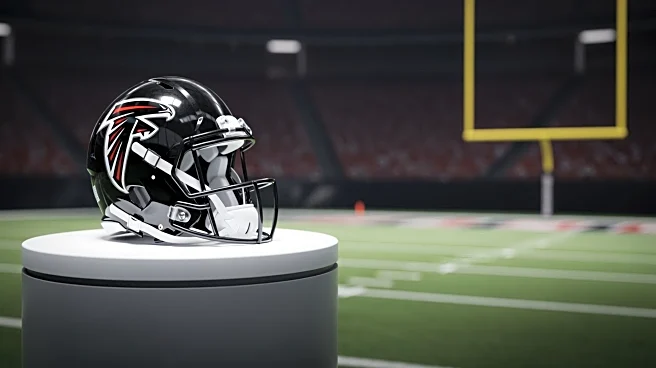What's Happening?
The Atlanta Falcons are facing difficulties with their rookie quarterback, Michael Penix Jr., who was selected as the eighth overall pick in the NFL Draft. Despite his impressive arm strength, Penix has
struggled with accuracy and decision-making under pressure, ranking 27th among 33 quarterbacks in dropback success rate when blitzed. The Falcons had previously invested $180 million in Kirk Cousins, raising questions about the value of their draft choice. Penix's performance is being compared to other quarterbacks drafted in the same round, such as J.J. McCarthy and Bo Nix, who have also underperformed relative to top picks like Caleb Williams and Jayden Daniels.
Why It's Important?
The performance of Michael Penix Jr. is crucial for the Atlanta Falcons, as they have invested heavily in their quarterback lineup. If Penix fails to improve, the team may face the challenge of finding another quarterback, which could impact their long-term strategy and financial commitments. The situation highlights the risks associated with drafting quarterbacks and the importance of rookie-scale contracts in NFL roster construction. The Falcons' decision could influence future draft strategies and player evaluations across the league.
What's Next?
The Falcons will need to assess Penix's development and consider potential adjustments to their quarterback strategy. If Penix does not show improvement, discussions about acquiring another quarterback may intensify. The team will likely monitor his performance closely in upcoming games to determine the best course of action.
Beyond the Headlines
The situation with Michael Penix Jr. underscores the broader challenges NFL teams face in evaluating and developing rookie quarterbacks. It raises questions about the effectiveness of scouting and the pressure on teams to make high-stakes decisions in the draft. The Falcons' experience may prompt other teams to reconsider their approach to quarterback selection and development.










